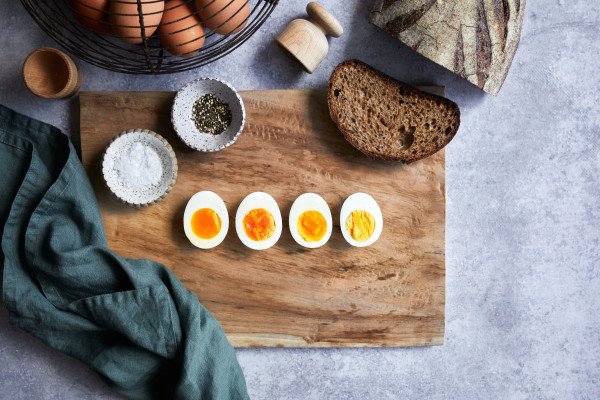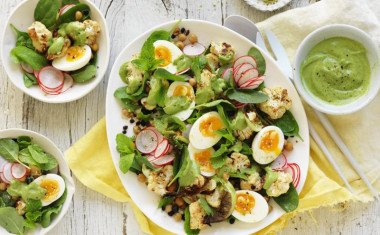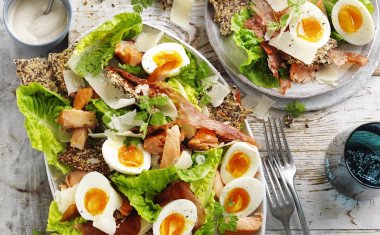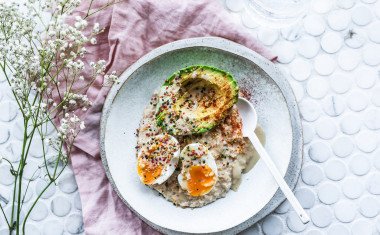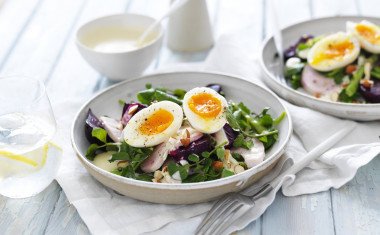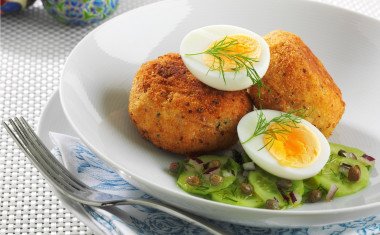
Easy Boiled Eggs
Easy Boiled Eggs
- Preparation time 5 mins
- Serves 1 person
- Download as PDF
- Publication
- Categories
How To Make Perfect Boiled Eggs Every Time
There's no better comfort food than soft boiled eggs with buttered toast soldiers. Boiled eggs also feature in a huge range of dishes such as salads, sandwiches and curries, and for some of these dishes, you'll want a harder boiled egg.
So how do you get perfect soft, medium or hard boiled eggs, every time? A great boiled egg really comes down to timing. Use a timer to keep it precise and remember that the timer needs to start when the water starts simmering.
Follow the method below and after doing it a few times you'll be able to cook exactly the boiled eggs you want without even thinking about it.
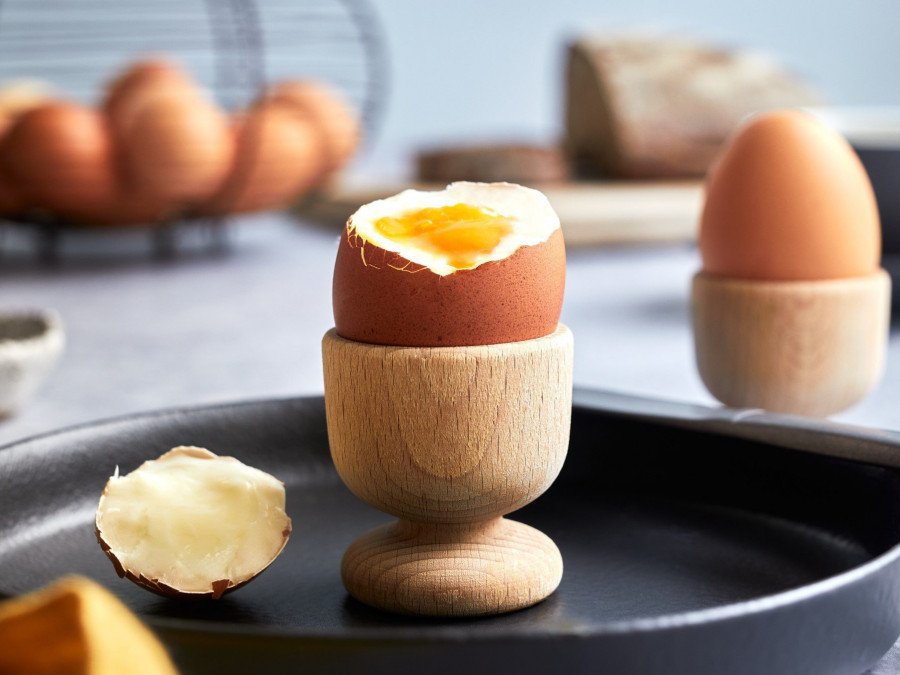
Ingredients
- Eggs
- Tap water
- Bread for toasting
- Salt and pepper
Method
Take a saucepan and half fill it with cold water from the tap. Gently lower the eggs into the saucepan.
Place the pan over a medium heat. When the water reaches a simmer, start the timer so you can precisely time the cooking process. If you gently stir the eggs in a clockwise direction, the movement of the water will help centre the yolks.
Simmer the eggs in the saucepan for the length of time that suits your boiled eggs preference.
a) SOFT BOILED eggs: Simmer the eggs for 4 minutes for runny yolks

b) MEDIUM BOILED eggs: Simmer the eggs for 5 minutes for semi-firm yolks and hard whites
c) HARD BOILED eggs: Simmer the eggs for 8 minutes for well cooked, hard boiled eggsUse a large spoon to remove the eggs from the water.
Cool the eggs by running them under cold tap water for 30-60 seconds or placing them in a bowl of iced water.
Notes
- Serve softly boiled eggs in an egg cup with buttery toast cut into soldiers.
- Don't boil the water too hard: a light simmer is all you need.
- Don't overcook the eggs, even for hard boiled eggs. The yolks will start turning grey and the whites will go rubbery.
- To peel a medium or hard boiled egg, first run it under cold tap water or submerge it in a bowl of cold water. Then crack the shell all over by tapping the egg on a hard surface and roll it around in your hands to help loosen the shell.
- Older eggs are perfect for boiling as they are easier to peel. This is because the small air pocket at the wide end of the egg becomes larger as the egg ages (that’s why really old eggs float).
- If cooking more than two eggs, make sure your eggs fit in the saucepan in a single layer.
- Don’t just glance at the clock, set a timer to get consistent boiled eggs every time.
- Boiled eggs (still in their shell) can be refrigerated for up to a week.
- Store your hard boiled eggs in an air-tight container in the refrigerator. Eggshells are porous, and without a protective container it can absorb some of the smells and flavours of the fridge.
A boiled egg is a versatile addition to any salad. This simple boiled egg salad recipe is anything but boring.
Nutritional Information
- Serving size 55g
- Energy 316kJ 76kcal
- Protein 6.8g
- Total fat 5.2g
- Saturated fat 1.4g
- Carbs (total) 0.4g
- Carbs (sugar) 0.2g
- Sodium 70mg
- Vitamin D 3.3µg
All nutrition values are per serve.
 >
> 